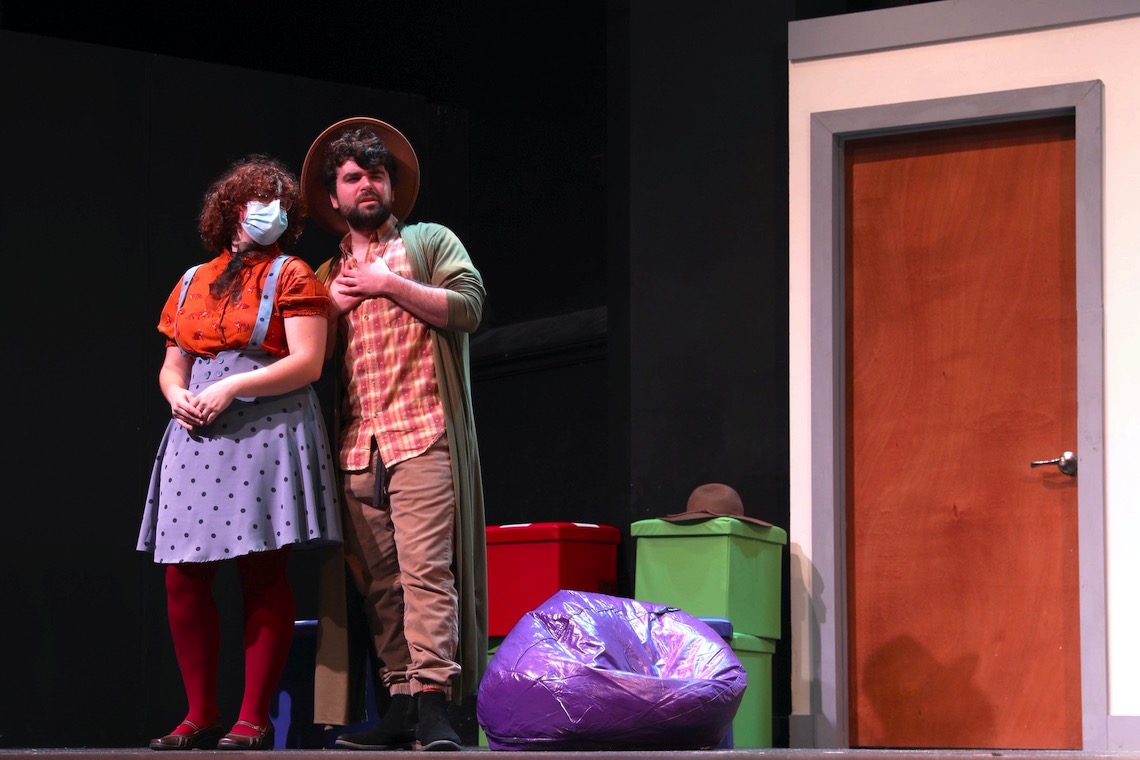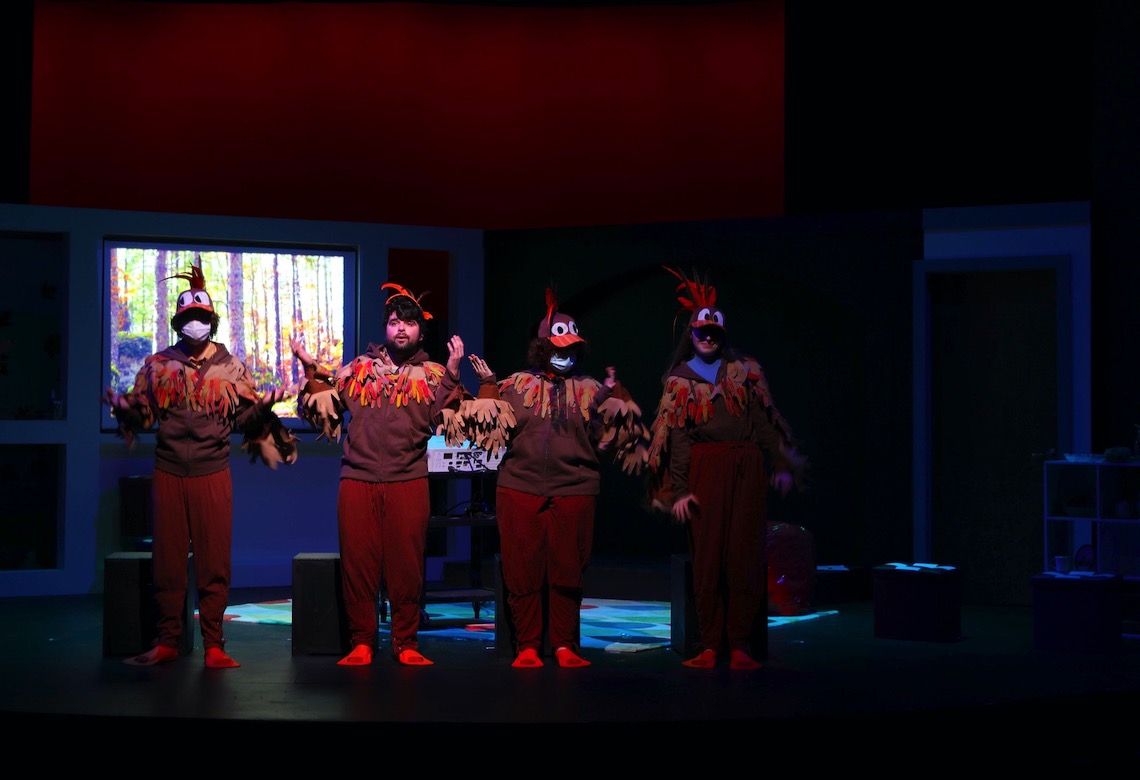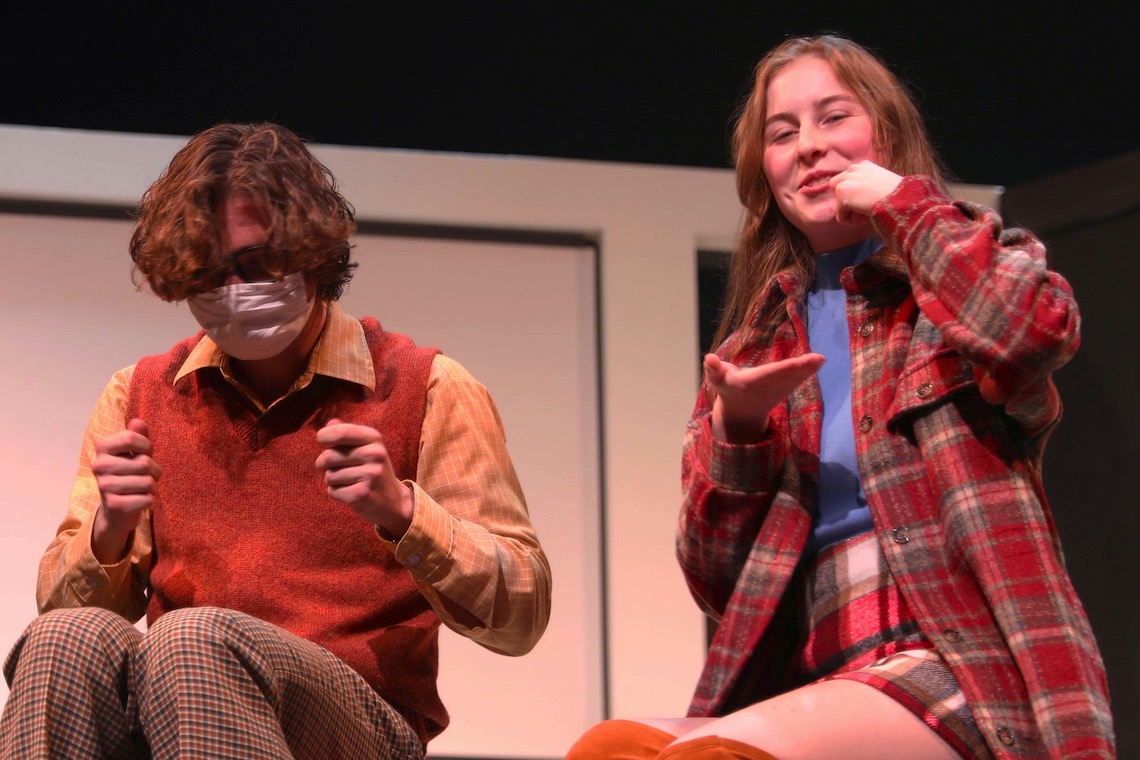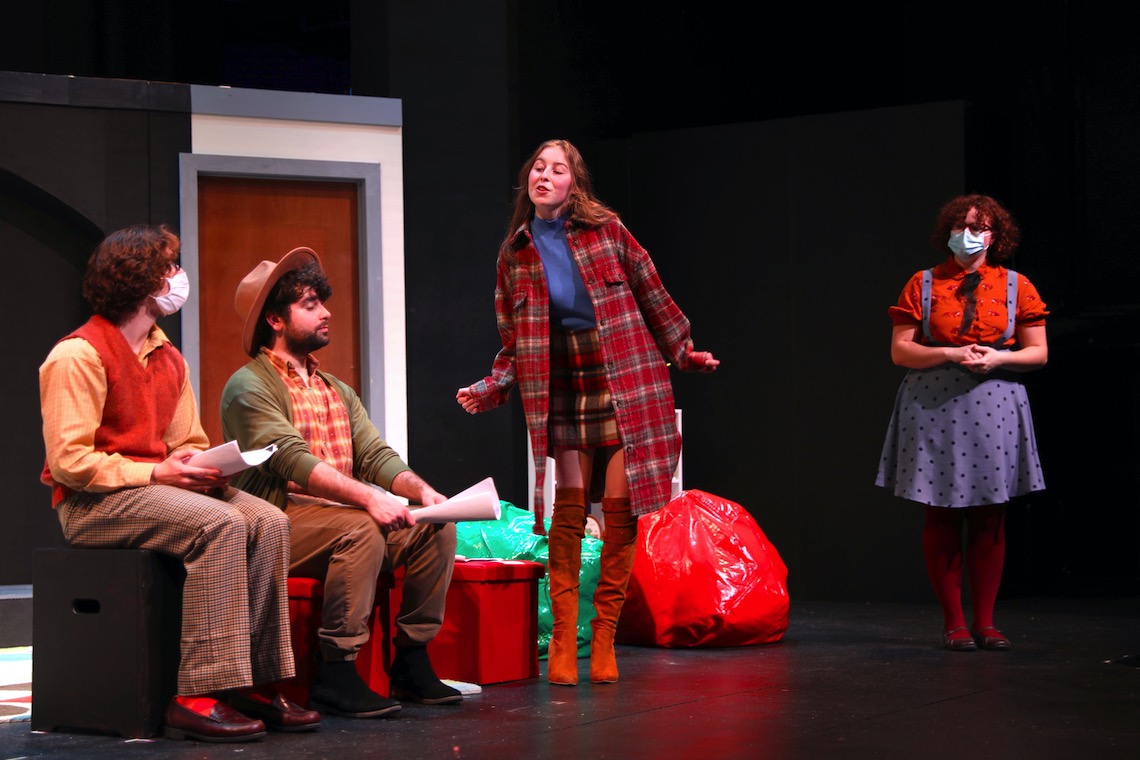
The University of Southern Maine Theatre Department is daring audiences to laugh at some of the same topics that would make them squirm at a holiday dinner with their families.
“The Thanksgiving Play” is the first production of the fall semester. The title immediately brings to mind traditional images of pilgrims and turkeys. The play finds humor in the struggle to replace those happy myths with a more honest and less sanitized understanding of history.
“I hope that it will get people to engage, but I’m not trying to ruin everybody’s Thanksgiving,” said Dr. Rachel Price Cooper, the show’s director and Assistant Professor of Theatre. “You can go eat turkey with your family, but give it a little thought.”
The show is about a play within the play. It’s set behind the scenes of a small community theatre as the fictional company struggles to stage a retelling of the first Thanksgiving for grade school students. The harder they try to avoid offending anyone, the more offensive they become.
The real actors were initially nervous about speaking some of the edgier lines dealing with the clash of indigenous and European cultures. As they became more familiar with the material, they understood better that the script used uncomfortable language in order to mock it.

“It’s through things like this when it’s a comedy, where it’s a little bit more lighthearted, that people can lift up together and have a conversation about it because it’s not as serious,” said Brooks Ewald.
That was Ewald’s hope for the show’s reception two days before opening night at one of the last rehearsals on Tuesday, November 1. Ewald is a senior majoring in Theatre. In his latest role as Jaxton, he plays an over-the-top, self-serious actor and yoga enthusiast. Jaxton knows all the buzz words to sound sensitive without understanding the meaning behind them.
Logan is the uptight yin to Jaxton’s laid-back yang. She’s played by Arianna Koutrokois, a sophomore majoring in Elementary Education. Logan is Jaxton’s director and his romantic partner. A strict vegetarian, she brings the same obsession to her job as she brings to her diet.
In Logan’s zeal to produce something special, she commissioned a script from a history buff, played by junior Theatre major Will McPherson. Rounding out the principal cast is Emma Graffam as Alicia, whose long list of Native American roles was supposed to elevate the fictional show’s cultural legitimacy. Alicia’s credentials turn out to be bogus, leaving Logan horrified by the realization that her entire production team is white.

“I’ve never played a character quite like this, so it’s scary to see if the audience will respond well to it and our interpretation of the show,” said Graffam, a freshman Theatre major. “But as we’ve gone through the rehearsal process, I’ve felt more confident in what we’re creating.”
The show’s careful balancing act, which teeters between learning and laughing, began with the playwright, Larissa FastHorse. As a member of the Sicangu Lakota Nation, she often draws on her background for themes that run through her writing for stage and television.
“The playwright talks about how her favorite kind of laugh is the laugh that starts and then gets stopped because there’s a recognition in there,” Price Cooper said.
The director wanted to make sure her production didn’t fall into the same trap as the characters they’re lampooning. She brought in her friend, Dr. Shannon Epplett, as an advisor. He’s an assistant professor at Illinois State University and a member of the Sault Ste. Marie Tribe of Chippewa Indians. His presence freed the cast from second-guessing themselves when their lines pushed boundaries.

Confidence was especially important in an ensemble of only four main actors. The sparse stage dressing also kept the focus squarely on the dialogue and the relationships between the characters. It’s a change from the flashy costumes, industrial set design, and intricate choreography that Price Cooper oversaw as the director of “Urinetown” last March. But the two plays are similar in their examination of cultural flashpoints.
“You can’t shy away from the cringeworthy aspects because that’s the power of the piece. That’s where the critique is, the social critique,” Price Cooper said. “The Thanksgiving Play” opened during the first week of Native American Heritage Month on Thursday, November 3. Tickets are available for a second round of performances on November 18 and 19 in the theatre at Russell Hall on the Gorham Campus.

